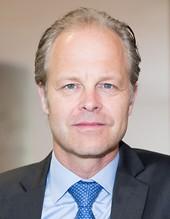The main forum for co-ordination of military support for Ukraine has been the US-led Ukraine Defence Contact Group – the Ramstein group. Bilateral channels have also been essential. Several EU member-states have contributed to UK-led efforts such as its training mission for Ukrainian forces. For its part, the UK helped design the curriculum for the EU’s training mission.
Financial assistance by the EU and the UK has been essential in keeping Ukraine financially afloat, and the EU is the largest financial donor to Ukraine. The main channels for co-ordinating financial support have been bilateral and the G7, but new frameworks like the Multi-Agency Donor Coordination Platform for Ukraine have also become important. The EU and the UK also participate in the Ukraine Recovery Conference process.
Looking ahead, the challenge for both the UK and its European partners will be to deepen their military and financial support for Kyiv, in a context where US assistance could be completely cut off if Trump is re-elected as American president. Both the UK and its partners are now transitioning to longer-term support for Ukraine, but this is not easy. If lack of assistance allows Russia to win the war, Europeans would be in a very dangerous position.
Discussions over Kyiv’s possible NATO membership, or direct involvement of European personnel in the war to support Ukraine, are likely to climb up the agenda but will remain controversial. The priority for the EU and the UK will be to continue to provide Ukraine with military assistance. Both are thinking about how to increase their defence production and how to ensure Ukraine itself can produce more of the defence equipment it needs.
Ukraine will need extensive support to rebuild. Much of the discussion has focused on whether to confiscate Russia’s frozen central bank reserves – a question on which there is no consensus between the UK and its main EU partners. The UK and the EU are also thinking about how to encourage reforms to attract private capital. For the EU the main tool in that regard is Ukraine’s accession process, which the UK supports. However, accession will be a long process, as it requires member-states to agree on how the EU itself needs to adapt.
The future of British, German and EU support for Ukraine depends in large part on whether public opinion remains supportive. In the UK, there is strong cross-party support for Ukraine. The situation in the EU is more mixed. Hungary and Slovakia have been vocal about opposing further assistance to Ukraine. Meanwhile, polls indicate that there is substantial scepticism about additional support for Kyiv in several western and southern European countries, including Germany, France and Italy.
Politically and diplomatically, the main challenge for the EU and the UK will be maintaining support for Kyiv in a scenario where Trump becomes US President and reduces or ends US assistance. Political co-ordination within the G7 and NATO would be more difficult and the importance of bilateral channels and of direct UK-EU dialogue would increase. The addition of a structured UK-EU security dialogue would strengthen the current ad-hoc mode of co-operation.
In terms of military assistance, the challenge that the UK, Germany and the EU face is how to increase supplies to Ukraine. With Trump, the US could withdraw from its co-ordinating role in the Ramstein group, making alternative arrangements necessary. The UK and its allies should explore how to involve the UK more closely with EU defence industrial tools to close the emerging ‘defence gap’ across the Channel.
The UK, Germany and its European allies should work together more closely on Ukraine’s reconstruction and EU integration. They should devote particular attention to the question of how Russia’s frozen assets and their profits can be used to help support Ukraine...
Read full text via PDF download!




